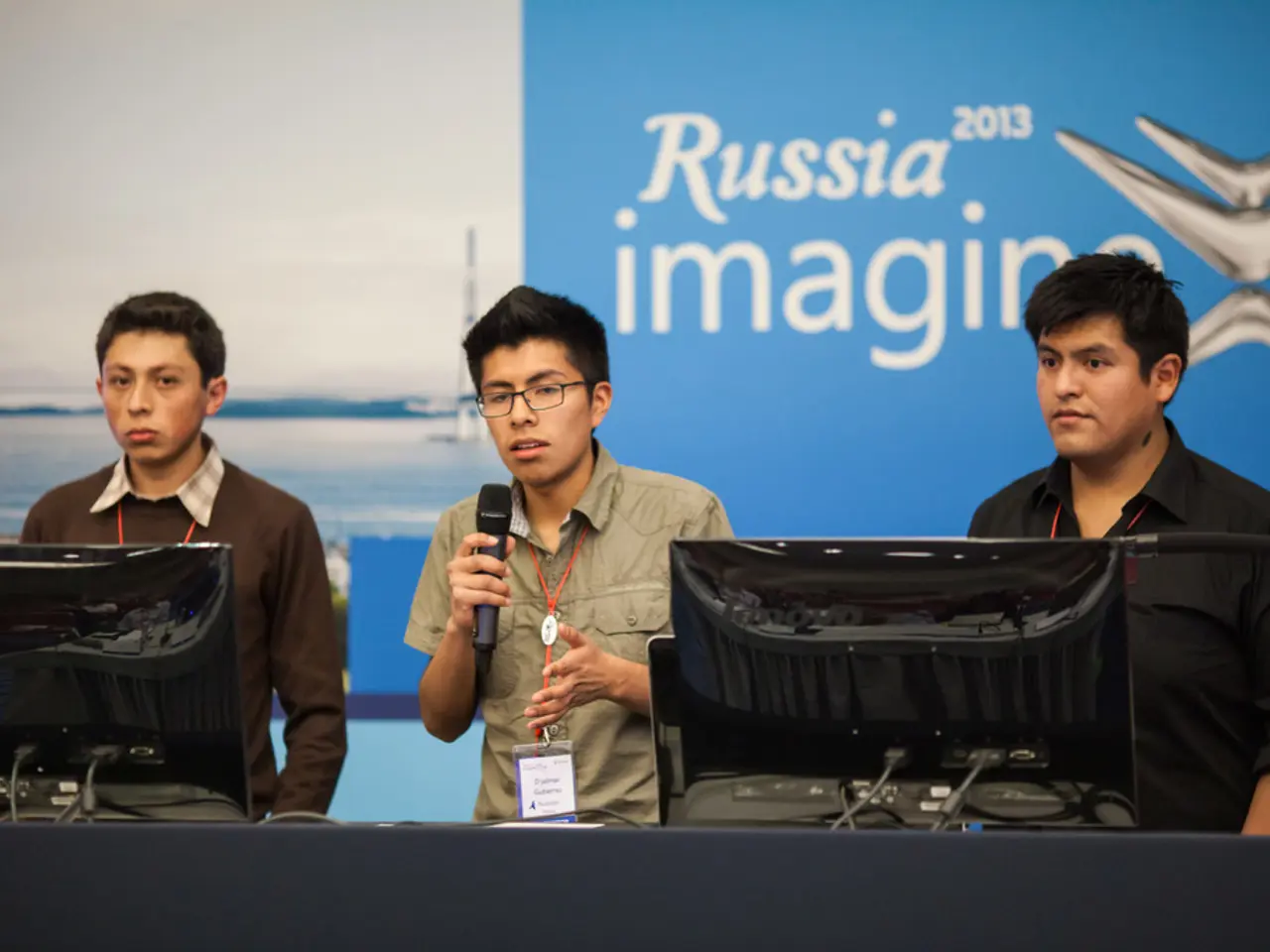China intensifies AI competition with NVIDIA restrictions as declared by CEO Jensen Huang, who remains nonchalant about the situation.
In the realm of technological advancements, China has been making significant strides in the field of Artificial Intelligence (AI). While Nvidia, a leading American tech company, has been facing regulatory roadblocks in the Chinese market.
This week, China launched probes targeting domestic chipmakers, just before the trade talks in Madrid. Meanwhile, Nvidia's CEO, Jensen Huang, expressed disappointment but promised patience regarding these regulatory hurdles. Nvidia's shares, however, have seen a dip, with the company's shares down more than 1% in early trading, extending a 5% drawdown from its post-earnings highs.
On a positive note, Chinese researchers have made a significant breakthrough with SpikingBrain 1.0, an AI system based on spiking neural networks in the human brain. This system, running entirely on China's homegrown MetaX chip platform, has shown promising results, being up to 100 times faster than standard systems.
However, the data for SpikingBrain 1.0 has not yet been peer-reviewed. In contrast, Nvidia's case in China centers around US export restrictions aiming to prevent China from obtaining advanced AI chips with potential military applications. Nvidia was initially barred from selling its specially designed but limited-performance H2O AI chips to China, causing significant losses.
Following negotiations, Nvidia regained its export license for the H2O chips in August 2025, and it is developing more powerful 'B30A' AI chips for the Chinese market. These chips would offer substantially higher performance while still complying with US regulations. However, an unusual agreement allows the US government to take a 15% share from Nvidia's AI chip sales to China.
The regulatory challenges have led Huang to guide financial analysts not to include China in their forecasts. He stated, 'There are a lot of places we can't go to, and that's fine.' Jensen Huang is currently in the U.K. for President Trump's state visit.
Meanwhile, the Cyberspace Administration of China (CAC) has banned major tech companies from purchasing Nvidia's artificial intelligence (AI) chips. This ban has affected companies like ByteDance and Alibaba, which have been instructed to discontinue testing of Nvidia's RTX Pro 6000D chip.
Despite these challenges, Alibaba (BABA) stock opened more than 2% higher in New York after landing a massive data center deal to provide AI chips to state-owned China Unicom.
John Rowland, the author of this article, believes that Beijing isn't trying to level the playing field on AI; instead, it's playing to win. By surpassing Western Large Language Models (LLMs) at a reduced cost using entirely Chinese tech, China isn't just trying to compete in AI; it's trying to lead.
In a separate development, Nvidia itself has been accused of violating antimonopoly regulations following its Mellanox acquisition in 2020.
Elizabeth H. Volk has a position in NVDA. This article is for informational purposes only and should not be taken as investment advice. Always conduct your own research before making investment decisions.
Read also:
- MRI Scans in Epilepsy Diagnosis: Function and Revealed Findings
- Hematology specialist and anemia treatment: The role of a hematologist in managing anemia conditions
- Enhancing the framework or setup for efficient operation and growth
- Hydroelectric Power Generation Industry Forecasted to Expand to USD 413.3 Billion by 2034, Projected Growth Rate of 5.8% Compound Annual Growth Rate (CAGR)







